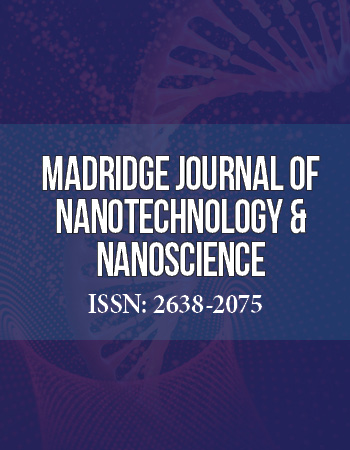3rd International Nanotechnology Conference & Expo
May 7-9, 2018, Rome, Italy
Chitosan Nanoparticle Synthesis in a Microfluidic System
Mechanical Engineering Department, Bilkent University, Turkey
Nanoparticles have attracted a lot of attention in the past few decades due to their unique size-dependent properties and their great potential in biotechnology for applications such as bioseparation, tagging, imaging and drug delivery. It is important to synthesize them with monodisperse size and shape to obtain uniform properties. Currently synthesis and functionalization of nanoparticles for biotechnology is made with batch techniques. However batch processes lack the ability to obtain uniform size and shape which reduces their sensitivity and selectivity for detection. Microfluidics is an alternative method by which the limitations of conventional techniques can be addressed. Handling small volumes of liquid allows better control of mixing, and hence yields more uniform chemical composition.
Chitosan is one of the most suitable materials that can be used in drug delivery due to its biocompatibility, low toxicity, biodegradability and stability. When it is synthesized in nanometer dimensions, due to its small size and pH responsive chemistry it can penetrate into cells to release the drug it carries. However, all of the properties of chitosan is dependent on its size when it is not in the bulk form. Therefore monodispersity is necessary to obtain uniform properties among the synthesized nanodrugs. Microfluidic systems provide several advantages in nanomaterial synthesis as handling small volumes of liquid gives the ability of rapid mixing, accurate and fast temperature monitoring, achieving precise concentrations and preventing excess usage of materials. Due to the small volumes of liquid, rapid mixing can be achieved and different temperature zones can be obtained.
Here we propose a droplet-based microfluidic system to synthesize chitosan nanoparticles in a controlled way. In order to perform targeted drug delivery, nanoparticles will be composed of both a magnetic material and chitosan that carries the drug. Therefore a two step synthesis methodology will be used.
Biography:
E.Y. Erdem is an assistant professor in the Mechanical Engineering Department at Bilkent University, Ankara, Turkey. She received her BS degree from Sabanci University (Istanbul, Turkey) in 2006 in Mechatronics Engineering. She received her MS degree from University of Washington (Seattle, USA) in Mechanical Engineering in 2008 and PhD degree from University of California at Berkeley (Berkeley, USA) in Mechanical Engineering in 2013.


